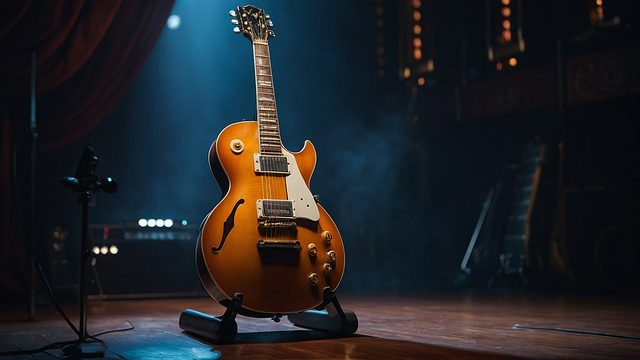The integration of AI music tools has drastically altered the creative landscape for ai musicians, offering unprecedented opportunities to explore and express their artistic vision. These technologies, leveraging machine learning and deep neural networks, enable the creation of complex melodies, harmonization of vocals, and original compositions that rival human creativity. By breaking free from traditional limitations, AI music tools foster innovation and expand the boundaries of modern music production. They democratize music production, empower artists with accessible entry points, and serve as a starting point for compositions, sparking creative inspiration. However, challenges such as copyright infringement and bias in AI-generated music require careful addressing to establish ethical guidelines and best practices for ai musicians.
“Dive into the future of music creation with our comprehensive blog, dedicated to empowering ai musicians. In this digital age, Artificial Intelligence (AI) is revolutionizing the industry, offering unprecedented tools for composers and producers. From understanding the fundamentals of AI music tools to exploring their transformative impact on production processes, we guide you through this new era. Discover top generators, sound design enhancements, and the exciting potential of human-AI collaborations. Uncover both the opportunities and ethical considerations shaping the future of ai musicians.”
- Understanding AI Music Tools: A New Era for Musicians
- How AI is Transforming the Music Production Process
- Top AI Music Generators: Unlocking Creative Potential
- Enhancing Sound Design with Artificial Intelligence
- The Future of Music Collaboration: Human-AI Partnerships
- Overcoming Challenges and Ethical Considerations in AI Music Creation
Understanding AI Music Tools: A New Era for Musicians
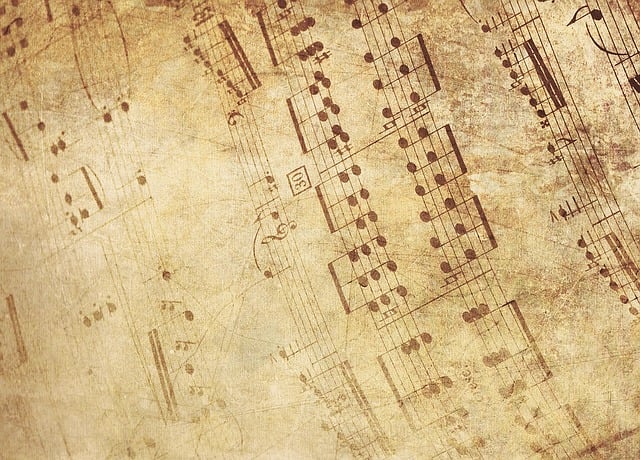
The rise of AI music tools has ushered in a new era for musicians, opening doors to endless creative possibilities. These cutting-edge technologies are transforming the way artists compose, produce, and collaborate, pushing boundaries that were once thought impossible. By leveraging machine learning algorithms and deep neural networks, AI musicians can now generate melodies, harmonize vocals, and even create entire compositions with a level of complexity and diversity that matches human creativity.
This paradigm shift empowers ai musicians to experiment with different styles and genres, quickly iterate on ideas, and access a vast reservoir of musical knowledge. No longer confined to traditional instruments or composition techniques, AI music tools allow artists to explore sonic landscapes previously out of reach, fostering innovation and pushing the envelope of what’s possible in modern music production.
How AI is Transforming the Music Production Process

Artificial intelligence (AI) is revolutionizing the music production landscape, offering musicians and producers unprecedented tools to enhance their creative process. AI music technologies can generate melodies, harmonies, and even entire songs, providing a new dimension to musical composition. These tools learn from vast datasets of existing music, allowing them to mimic various styles and genres, thus enabling ai musicians to explore diverse sonic territories.
The integration of AI into music production streamlines the creative workflow. Tasks that once required extensive manual effort or specialized skills can now be automated, saving time and resources. From intelligent music composition assistants to advanced audio mastering algorithms, AI is empowering artists to focus on their artistic vision while pushing the boundaries of musical innovation.
Top AI Music Generators: Unlocking Creative Potential
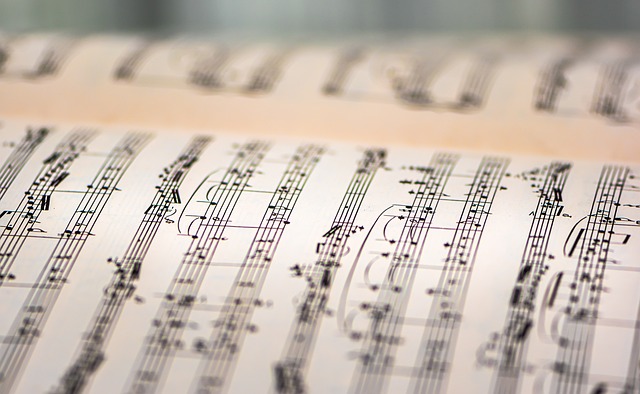
The rise of Artificial Intelligence (AI) has significantly transformed the music industry, offering AI musicians powerful tools to unlock their creative potential. Top AI music generators like Amper Music, AIVA (Artificial Intelligence Virtual Artist), and Melodrive lead the way in composing original tracks, from ambient to upbeat genres. These platforms learn from vast datasets of human compositions, enabling them to generate unique melodies, harmonies, and arrangements tailored to specific moods and styles.
For AI musicians, these tools democratize music production, making it accessible to creators without extensive musical training or expensive gear. By providing a starting point for compositions and offering creative inspiration, AI music generators allow artists to focus on refining their ideas, adding personal touches, and storytelling through sound. This collaboration between human creativity and machine intelligence opens up exciting avenues for musical exploration and innovation.
Enhancing Sound Design with Artificial Intelligence
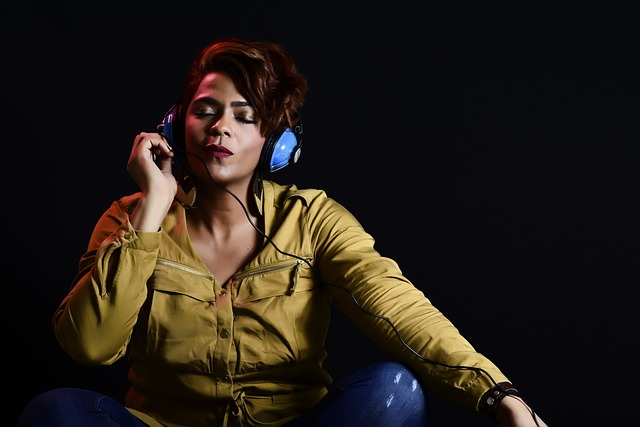
Artificial Intelligence (AI) is transforming the landscape of sound design, offering ai musicians unprecedented opportunities to create and innovate. By leveraging machine learning algorithms, AI tools can analyze vast amounts of musical data to generate new and unique sounds, textures, and compositions. These tools learn from existing music, understanding patterns, harmonies, and structures, which allows them to produce creative outputs that mimic human composition while pushing boundaries.
For ai musicians, this means access to an expansive library of synthetic sounds, intricate sound effects, and harmonious arrangements at their fingertips. AI-powered music production software can automate repetitive tasks, such as adjusting dynamics or applying effects, freeing up musicians’ time for more artistic pursuits. This technology empowers creators to explore uncharted sonic territories, experiment with new styles, and elevate their music to entirely new levels of complexity and depth.
The Future of Music Collaboration: Human-AI Partnerships
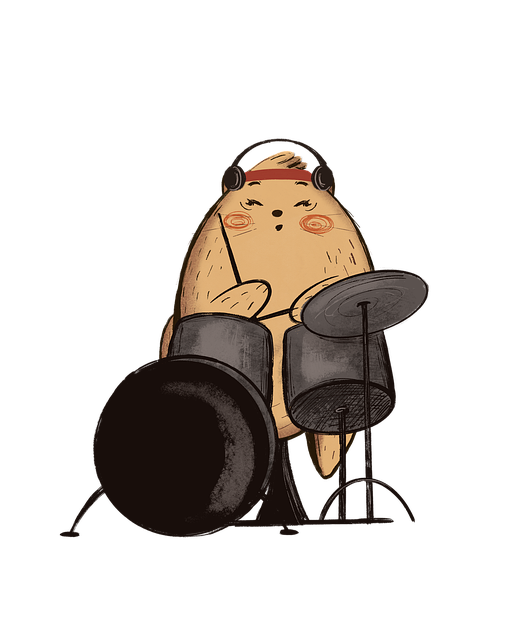
The future of music collaboration is here, and it involves a powerful partnership between human creativity and artificial intelligence (AI) music tools. As AI continues to evolve, its potential to augment and enhance musical processes becomes increasingly apparent. AI musicians can take on various roles, from composing intricate melodies to providing creative feedback and offering new perspectives on sound design. This technology allows for an expansion of artistic possibilities, enabling musicians to explore uncharted territories in their compositions.
In these partnerships, AI acts as a collaborative partner, understanding and interpreting human musical preferences while suggesting innovative ideas. It can analyze vast music datasets, identify patterns, and generate unique musical elements, all while respecting the artist’s vision. This collaboration fosters creativity, speeds up production time, and paves the way for groundbreaking music that blends the best of both human and artificial intelligence.
Overcoming Challenges and Ethical Considerations in AI Music Creation
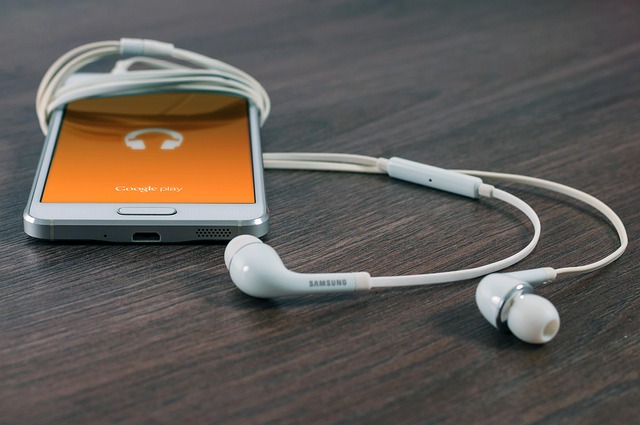
AI music tools offer a wealth of opportunities for musicians and producers, but they also present certain challenges and ethical dilemmas. One significant hurdle is the potential for copyright infringement when using AI-generated music. As AI algorithms learn from existing musical works, there’s a risk of producing content that resembles or even replicates copyrighted material. This raises questions about ownership and attribution, especially as AI becomes more sophisticated in its creativity.
Additionally, ensuring diversity and preventing bias in AI music creation is essential. Training data used by these models should be carefully curated to avoid perpetuating stereotypes or creating biased outputs. The onus is on developers and users alike to ensure that AI tools do not contribute to the marginalization of certain musical styles, genres, or cultures. Addressing these challenges requires collaboration between technologists, musicians, and legal experts to establish guidelines and best practices for ethical AI music creation and distribution.
In conclusion, AI music tools are revolutionizing the creative landscape for musicians and producers, opening doors to unprecedented possibilities. From generating melodies to enhancing sound design, these technologies offer a new era of musical expression. As we navigate this evolving world, understanding the potential and challenges of AI in music is key. By embracing innovative solutions and fostering human-AI partnerships, ai musicians can unlock their creative potential, push boundaries, and shape the future of music production.
